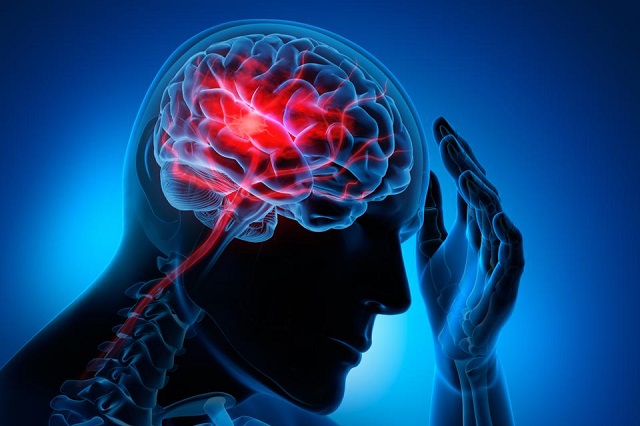
Kampala, Uganda | THE INDEPENDENT | The number of Ugandans suffering from stroke is on the rise, according to Dr. Ibrahim Bukenya, the managing director of the Uganda Stroke Foundation.
Stroke is a condition that affects the brain. It occurs when blood flow to the brain is reduced or blocked which then stops oxygen and the flow of nutrients to the brain. As a result, brain cells start dying hence the inability of some body parts to function as expected.
Figures from the health ministry show that the number of Ugandans suffering from stroke has been on the rise and figures from the Uganda Stroke Foundation show that from 2013 to date, an increase of over 100 percent in the number of stroke cases has been recorded in the country.
In 2013, the figure of Ugandans reported to have suffered a stroke and were under going rehabilitation were 104. This number in 2015 increased to 195, and in 2019 it further increased to 326.
Dr. Bukenya says that although the number of people with stroke is on the rise, the stroke survivors that they have treated are also many.
Strokes can occur at any age but children under the age of one and adults are more susceptible. Other people who face the risk of suffering from a stroke include persons with high blood pressure, heart disease and diabetics. Other high risk groups include smokers and women who take birth or use hormonal replacement therapy.
A stroke can cause lasting brain damage, long-term disability, or even death. Signs of a stroke can range from mild weakness to paralysis or numbness on one side of the face or body. Other signs include a sudden and severe headache, sudden weakness, trouble seeing and trouble speaking or understanding speech. Other symptoms associated with strokes are; failure for someone to blink in one side of the face, failure to control mouth and leg movements are associated with the disease.
Dr. Bukenya says despite the rise in reported cases, there’s still an information gap as far as strokes are concerned. Many Ugandans he says never know when they are suffering from a stroke.
“Many people who suffer from stroke do not know they are going through it when it happens. Even when they are rushed to hospitals, some of them come to us when they do not understand that the condition can be revered with physiotherapy. Some think it is a death sentence,” says Dr. Bukenya.
Martha Nagawa, a mother of four and a stroke survivor says so many people become interested in finding out more about stroke after suffering from one. She says before she suffered from a stroke in 2016, she had never heard about the condition. “I had never heard about stroke. Even when I was going through it, I did not know what it was. I could not explain it. One moment I was fine and the next I was not. One moment I was standing and the next I was on the flour, my legs could no longer support me. I thought I was unwell because my blood pressure had increased,” she narrates.
Dr. Bukenya says that stroke survivors on a good day are faced with a number of challenges like discrimination, lack of information on how to manage the condition and lack of drugs to treat other pre-existing conditions. With the COVID-19 pandemic, Bukenya says the challenges have increased.
In cases where such symptoms occur, it is very important for someone to seek medical attention. “This condition is not like malaria that can present over a long period of time. The moment even one symptom comes up, it is important to rush to the hospital because the longer someone takes to go to hospital, the more brain damage will occur due to lack of oxygen. This reduces the survival rate,” explained Dr. Bukenya.
******
URN
 The Independent Uganda: You get the Truth we Pay the Price
The Independent Uganda: You get the Truth we Pay the Price


